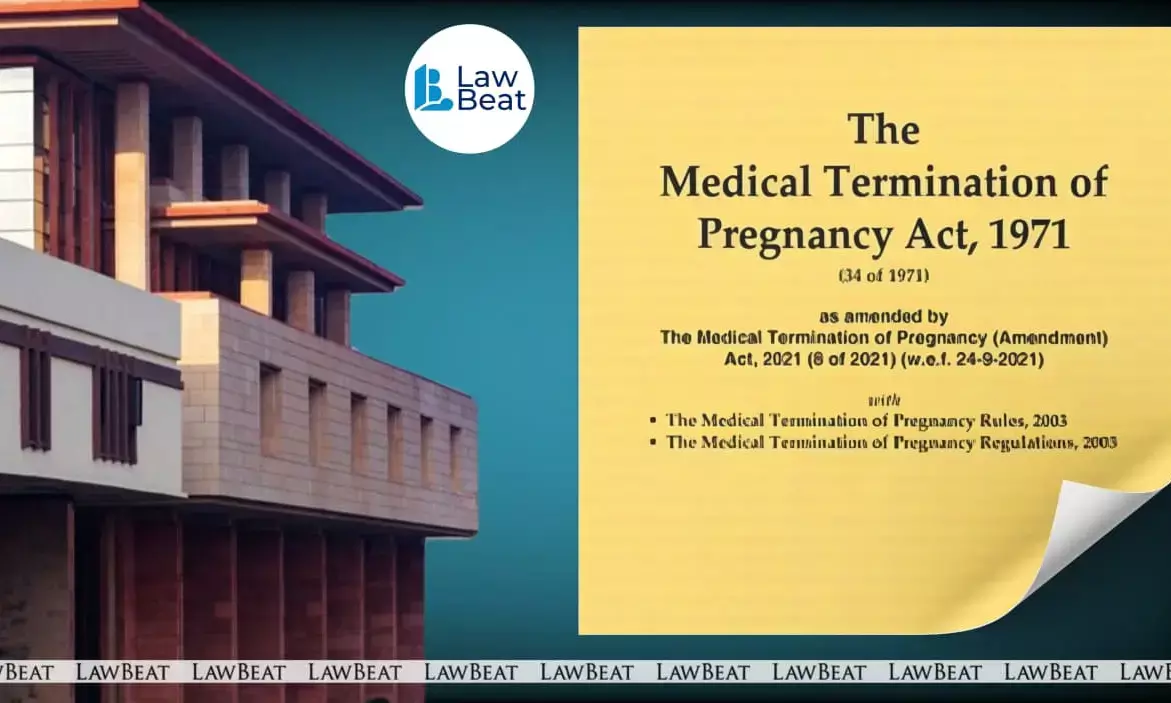Delhi HC Flags Need for Law on Rights of Viable Foetus, Allows Minor’s 27-Week Pregnancy Termination

The law must clearly delineate the balance between maternal autonomy and foetal rights at the stage of viability: Delhi HC
The Delhi High Court has raised a collateral yet recurring issue pertaining to the rights of a foetus once it attains viability, noting that the Medical Termination of Pregnancy Act, 1971, is silent on the subject. The court said that with the increasing number of cases seeking termination beyond the statutory limit, the question of foetal viability has assumed considerable importance in abortion jurisprudence.
A bench led by Justice Arun Monga has underscored the need for legislation to clearly define the legal rights of a viable foetus in cases involving late-term pregnancy termination.“It is, however, at this juncture that a larger question arises viz. what is the position in law as regards the rights of a viable foetus which, if delivered, may be born alive? This issue warrants attention. While constitutional courts have, in the absence of legislative clarity, sought to balance competing interests through case-specific adjudication, the absence of a clear statutory framework leaves the matter unsettled,” the court observed.
The observations were made while allowing a plea filed by a 15-year-old minor seeking termination of a 27-week pregnancy resulting from sexual assault. Before the High Court, the minor, through her mother, contended that continuation of the pregnancy would cause grave mental injury to her, as also to the unwanted child if born.
Notably, the victim and her family had resided in a rented premises in 2016, where she came to know the accused, the landlord’s son. The accused developed a friendship that later turned into a relationship. In December 2024, he allegedly lured the victim to his residence under the promise of marriage and established physical relations with her for the first time on December 14, 2024. Thereafter, on multiple occasions, he continued to exploit her under the false pretext of marriage, the last such incident occurring in April 2025. Later, when the minor discovered she was pregnant, the accused refused to marry her and pressured her to abort the child.
The victim eventually disclosed the facts to her parents. Her father immediately contacted the police, leading to registration of an FIR under Section 69 of the Bharatiya Nyaya Sanhita, 2023 and Section 6 of the POCSO Act, 2012 at P.S. Subhash Place.
The Delhi Police, however, opposed the plea, contending that at 27 weeks, the foetus had a heartbeat and, as per medical opinion, might be born alive even if pregnancy was terminated by caesarean section.
Court, however, held that the balance must tilt in favour of the minor. “At this stage, the mental and physical well-being of the victim, who has already endured cruelty at the hands of the perpetrators, must outweigh the mere probability of the foetus being born alive. Considering the age of the petitioner and the mental and physical trauma inflicted upon her by the heinous act of sexual assault, this Court is of the opinion that continuation of the pregnancy would permanently scar her psyche and cause grave and irreparable harm to her physical and mental health,” Justice Monga said.
Allowing the plea, the Court directed Dr. Baba Saheb Ambedkar Hospital, Rohini, to carry out the procedure at the earliest. It further directed that “in the event the child is born alive, the Superintendent of the hospital shall ensure that all possible and feasible medical assistance is extended to such child, and the Child Welfare Committee concerned shall take necessary steps in accordance with law. The cost of the procedure, if any, is directed to be borne by the State.”
Before parting with the matter, the Court returned to the larger issue of foetal rights. Justice Monga noted that medical science recognises viability around 24 weeks, and the 2021 amendment to the MTP Act also adopts this benchmark. Yet, courts have, in compelling circumstances, allowed termination even beyond this point when continuation poses grave risks to a woman’s life, health, or dignity.
The judge reiterated that the rights of the woman under Article 21 comprising her life, dignity, liberty, and decisional autonomy must prevail over competing claims of foetal survival. He underscored that constitutional guarantees cannot compel a woman to endure trauma solely to preserve unborn life. Courts have relied on expert Medical Boards in such cases, but “judicial discretion, however sensitively exercised, cannot be a substitute for legislative determination.”
Underlining the need for legislative clarity on the issue, Justice Monga said, “The law must clearly delineate the balance between maternal autonomy and foetal rights at the stage of viability. No doubt, until such clarity is provided, courts will continue to tread this delicate path, but the ultimate responsibility to settle the matter rests with the law-making authority. It is time that the lawmakers of the country address this question in no uncertain terms.”
For Petitioners: Mr. Anwesh Madhukar, Advocate (through VC) with Mr. Pranjal Shekhar, Mr. Ishat Singh and Ms. Prachi Niwan, Advocates
For Respondents: Mr.Amol Sinha, ASC (Criminal) (through VC) with SI Rupesh Raj, PS Subhash Place
Case Title: XX v. State Govt. of NCT of Delhi & Anr.
Order Date: 12 September 2025
Bench: Justice Arun Monga
